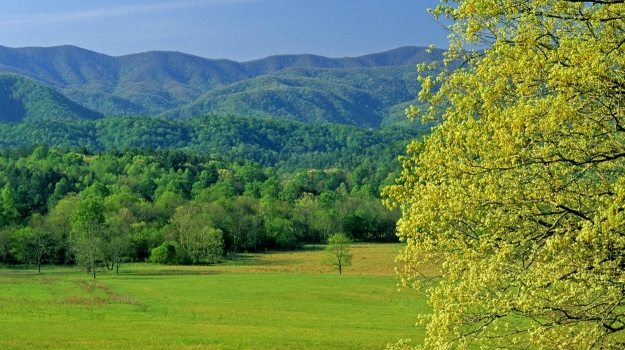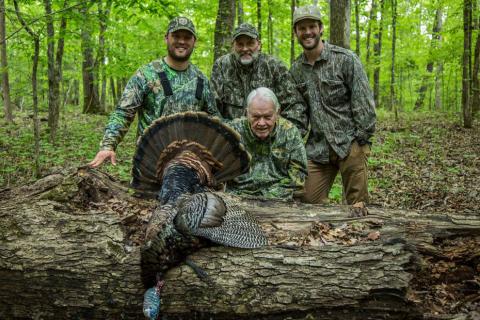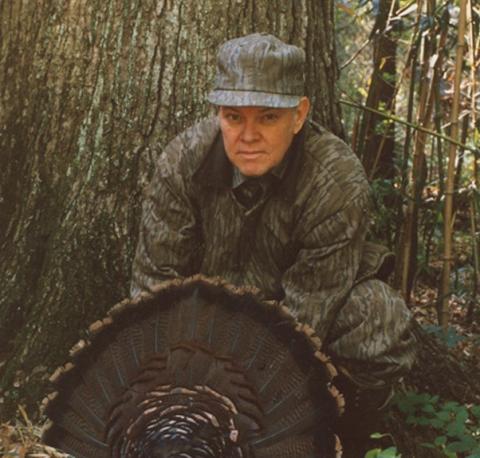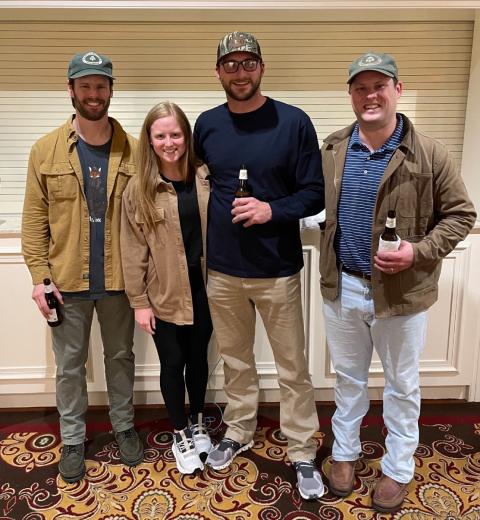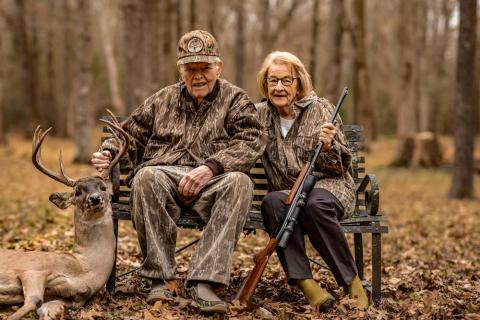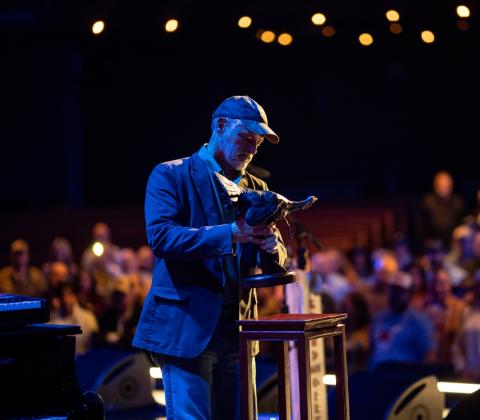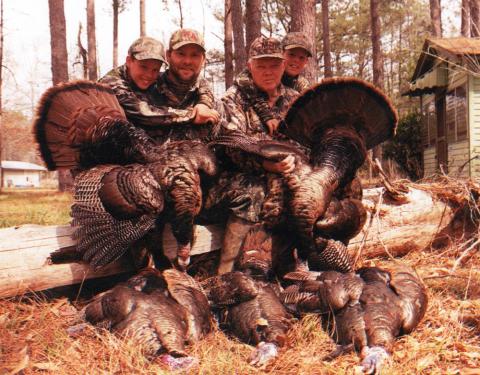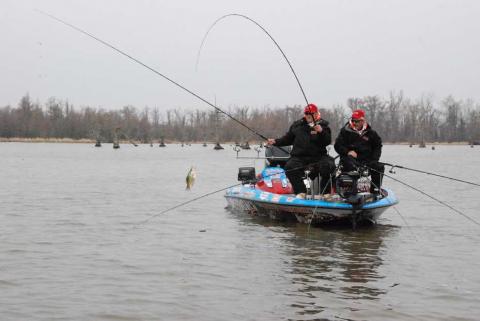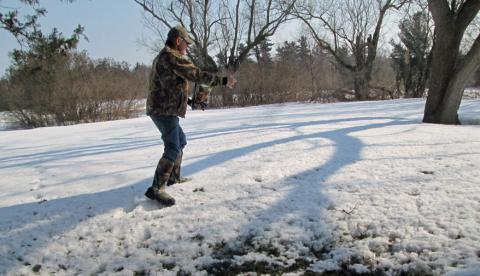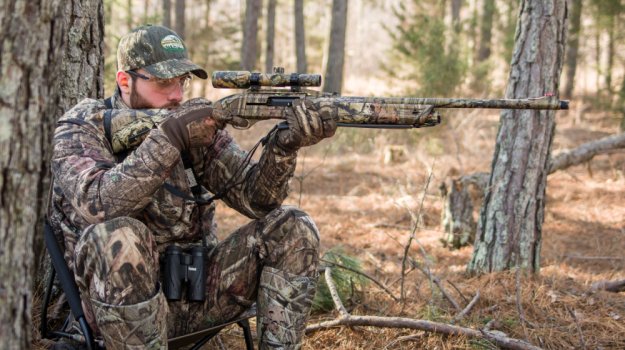
Editor’s Note: Michael Adams from Linden, Michigan, has been a Mossy Oak pro for 7 years. The director for television station WJRT Channel 12 in Flint, Mich., he’s been hunting turkeys for 10 years.
When I first started hunting turkeys, I liked to hunt by myself. But lately, I've found that the real joy that I get out of turkey hunting is calling in gobblers for other people, and teaching them how to turkey hunt like my dad has taught me. If I know other turkey hunters are hunting where I’m hunting, I’ll use a very high-pitched hen call. I don’t want to talk to the gobbler but instead want to get the boss hen to talk to me. I want her to scold me like I'm a young hen trying to get her boyfriend. So, as soon as a hen starts to yelp, I’ll rudely interrupt her calling with more of the young hen yelps. I want her to think that I have absolutely no respect for her, and I intend to lure her boyfriend away from her and start him coming to me. The best way I can describe what I'm trying to do is I want to sound like a teenage girl talking back to her mother. If I'm successful, that boss hen will be riled-up. I've had more success getting the hens fired-up and having them drag the gobbler to me than I have trying to call to gobblers.
On public lands, most turkey hunters want to call to the gobbler. After the first weekend of turkey season, I think the gobblers have learned what a turkey call sounds like. So, by forgetting about the gobbler (I don’t even talk to him) and acting like a smart-mouthed teenage girl back-talking her mother, I let the hens bring the gobblers to me. On public lands, I believe the gobblers have learned that if they keep their hens within eyesight, the hens will alert them to danger. I also think the gobblers learn that going to a hen yelping, without his flock of hens around him, may get him a free ride on someone’s pickup truck. By not calling to the gobbler but instead calling to the hens, I've been quite successful on public land. I use slate calls and a custom slate call that a friend made for me. This year I’ll also be using a Tom Teasers Custom Call. I’ll have one slate call, a glass friction call two other slate calls with me. I like the slate call because I can give a softer yelp on the slate than I can other calls. Here in Michigan we’re not calling over long distances, especially on public lands. I try to get as close as I can to the roost tree before daylight. I don’t need to throw my call over a long distance to let the turkeys know where I am.
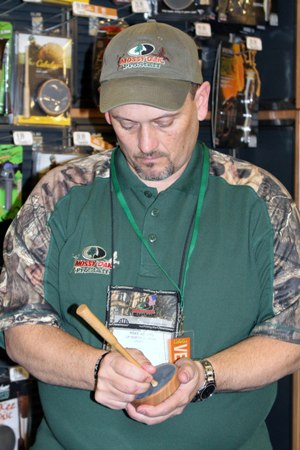 Usually, when I go on state lands, I get close to a roost tree and start calling to the hens. I stay put where I set-up until I'm ready to leave the woods. A couple of years ago I set-up and started calling, had hens answer me and kept calling to those hens. They continued to call, but they wouldn’t come to me. As a matter of fact, they wouldn’t move from where they were. I decided I must be calling to another hunter. So about 9:00 or 10:00 am, I got up and moved. When I arrived at my truck, another hunter came out of the woods. I asked the hunter, “Was that you calling to me with hen calls?” He smiled, looked at me and said, “Was that you calling to me with hens calls?” Then we both laughed. Be very careful when you're hunting on public lands. If the hens call back to you but don’t come to you, that’s often a good sign you're calling to another hunter. Once I get a hen actively calling to me, I won’t move.
Usually, when I go on state lands, I get close to a roost tree and start calling to the hens. I stay put where I set-up until I'm ready to leave the woods. A couple of years ago I set-up and started calling, had hens answer me and kept calling to those hens. They continued to call, but they wouldn’t come to me. As a matter of fact, they wouldn’t move from where they were. I decided I must be calling to another hunter. So about 9:00 or 10:00 am, I got up and moved. When I arrived at my truck, another hunter came out of the woods. I asked the hunter, “Was that you calling to me with hen calls?” He smiled, looked at me and said, “Was that you calling to me with hens calls?” Then we both laughed. Be very careful when you're hunting on public lands. If the hens call back to you but don’t come to you, that’s often a good sign you're calling to another hunter. Once I get a hen actively calling to me, I won’t move.
I like to hunt the late season, particularly the third week of Michigan’s turkey season. Turkey season is broken up into four different segments. We have three, one-week seasons. Then we have a 3-week season at the end of those 1-week seasons. I like to hunt the third week, because we usually don’t have snow then. The weather isn’t so cold either that you nearly freeze to death before fly-down time. I know that this late in turkey season those turkeys have had a lot of hunting pressure. If I hear a gobbler gobbling on the roost, and I give him a little soft purr on my slate call, then when he leaves the roost, I’ve learned that 9 times out of 10 he'll fly in the opposite direction from me. That gobbler has learned the game by the third week of the season – another one of the reasons I’ve learned to start calling to the hens rather than calling to the gobbler. I won’t even answer a gobbler when he gobbles. I wait to hear the hens. I don’t speak to the gobbler at all – I totally ignore him. I want the interaction to take place between me and the hens. If I can convince those hens that I’m a young, disrespectful hen that just has moved into their territory and trying to get their boyfriend, then those hens often will act like live decoys that the gobbler can see. Then he’ll follow them to me. The other advantage of calling to the hens and cutting them off when they start calling is that you're not nearly as likely to call in another hunter.
How to Scout before the Season with Michael Adams
Cold Weather and No Cover to Hide Behind Means Tough Early Season Turkey Hunting in the North
















